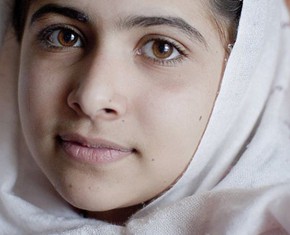The views expressed in our content reflect individual perspectives and do not represent the authoritative views of the Baha'i Faith.
If human life is sacred—as all the great religions have taught—then shouldn’t we do everything in our power to avoid harming that life?
The Baha’i teachings say yes:
Beware lest ye harm any soul, or make any heart to sorrow; lest ye wound any man with your words, be he known to you or a stranger, be he friend or foe. Pray ye for all; ask ye that all be blessed, all be forgiven. Beware, beware, lest any of you seek vengeance, even against one who is thirsting for your blood. Beware, beware, lest ye offend the feelings of another, even though he be an evil-doer, and he wish you ill. Look ye not upon the creatures, turn ye to their Creator. See ye not the never-yielding people, see but the Lord of Hosts. Gaze ye not down upon the dust, gaze upward at the shining sun, which hath caused every patch of darksome earth to glow with light. – Abdu’l-Baha, Selections from the Writings of Abdu’l-Baha, p. 73.
What role does religion play in preventing that harm?
Abdu’l-Baha offered this answer:
… among the teachings of Baha’u’llah is that religion is a mighty bulwark. If the edifice of religion shakes and totters, commotion and chaos will ensue and the order of things will be utterly upset, for in the world of mankind there are two safeguards that protect man from wrongdoing. One is the law which punishes the criminal; but the law prevents only the manifest crime and not the concealed sin; whereas the ideal safeguard, namely, the religion of God, prevents both the manifest and the concealed crime, trains man, educates morals, compels the adoption of virtues and is the all-inclusive power which guarantees the felicity of the world of mankind. – Abdu’l-Baha, Selections from the Writings of Abdu’l-Baha, pp. 302-303.
You might react by saying to yourself: “How does religion prevent harm? In some cases it actually causes harm!”
Abdu’l-Baha must have anticipated that reaction, when he followed the quote above with this crucial disclaimer:
But by religion is meant that which is ascertained by investigation and not that which is based on mere imitation, the foundations of Divine Religions and not human imitations. – Ibid., p. 303.
When the Baha’i writings refer to “the religion of God” in this way, they mean a true inner commitment, born out of sincere spiritual search, to following the teachings of the Creator. That commitment—which includes not only belief but action—impels us to try our best to adopt and follow a moral code of conscience that asks us to do no harm to humanity:
… the conscience of man is sacred and to be respected; and that liberty thereof produces widening of ideas, amendment of morals, improvement of conduct, disclosure of the secrets of creation, and manifestation of the hidden verities of the contingent world. – Abdu’l-Baha, A Traveller’s Narrative, p. 91.
When we commit to a spiritual path that asks us not to hurt others—to adopt the ideal of ahimsa, or non-harming—we also begin to see the world differently. Rather than blaming the harmful, violent and warlike actions of the past on a particular nation or religion or systemic philosophy or a way of being, we can view those harmful actions as the result of “immature stages in a vast historical process:”
To choose such a course is not to deny humanity’s past but to understand it. The Baha’i Faith regards the current world confusion and calamitous condition in human affairs as a natural phase in an organic process leading ultimately and irresistibly to the unification of the human race in a single social order whose boundaries are those of the planet. The human race, as a distinct, organic unit, has passed through evolutionary stages analogous to the stages of infancy and childhood in the lives of its individual members, and is now in the culminating period of its turbulent adolescence approaching its long-awaited coming of age.
A candid acknowledgement that prejudice, war and exploitation have been the expression of immature stages in a vast historical process and that the human race is today experiencing the unavoidable tumult which marks its collective coming of age is not a reason for despair but a prerequisite to undertaking the stupendous enterprise of building a peaceful world. That such an enterprise is possible, that the necessary constructive forces do exist, that unifying social structures can be erected, is the theme we urge you to examine. – The Universal House of Justice, October 1985, The Promise of World Peace, p. 1.
What if, the Baha’i teachings ask, humanity itself goes through successive stages of maturation just like individual human beings do? What if our tumultuous history actually represents the collective childhood of the human race? What if the wars, conflicts and violence we’ve suffered from for thousands of years comes from our shared spiritual immaturity as a race? What if the era we live in today represents the period of human adolescence, when we pass the period of our collective childhood and begin to achieve adulthood?
The suckling babe passeth through various physical stages, growing and developing at every stage, until its body reacheth the age of maturity. Having arrived at this stage it acquireth the capacity to manifest spiritual and intellectual perfections. The lights of comprehension, intelligence and knowledge become perceptible in it and the powers of its soul unfold. Similarly, in the contingent world, the human species hath undergone progressive physical changes and, by a slow process, hath scaled the ladder of civilization, realizing in itself the wonders, excellencies and gifts of humanity in their most glorious form, until it gained the capacity to express the splendours of spiritual perfections and divine ideals and became capable of hearkening to the call of God. Then at last the call of the Kingdom was raised, the spiritual virtues and perfections were revealed, the Sun of Reality dawned, and the teachings of the Most Great Peace, of the oneness of the world of humanity and of the universality of men, were promoted. – Abdu’l-Baha, Selections from the Writings of Abdu’l-Baha, pp. 285-286.
However, this progressive way of looking at human development—as a system of maturational stages we pass through as individuals and as a race—doesn’t absolve us from the responsibility for our own individual actions as adults. We still need to find ways not to harm others, to control our tempers, and to develop peaceful souls. In the next essay in this series, we’ll look at what the Baha’i teachings recommend for doing exactly that.
















Comments
Sign in or create an account
Continue with Googleor